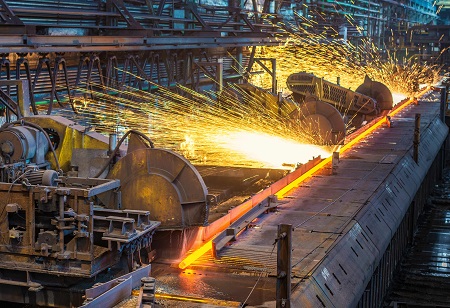The All India Induction Furnaces Association (AIIFA) and other industry associations have called on the government to simplify the scrap metal GST structure, affecting the entire steel industry in the country, according to an official publication of AIIFA. The scrap
steel industry, which makes steel by recycling scrap procured from scrap dealers using the induction furnace route, accounts for nearly 35 percent of the country's total steel production.
“The GST system creates substantial disruption in the supply of metal scrap, a key component in many
industrial processes. This contributes to various lawsuits regarding GST that incur large costs and take up considerable time,” says Sudhir Goyal, Member, All India Induction Furnaces Association (AIIFA).
He exhorted the government to consider the industry’s suggestions on introducing reverse charges mechanism (RCM), also distinguish between new and old scrap using separate HSN codes, and notify sale of old scrap under RCM for commercial manufacturers.
The steel industry in India has been an integral part of the country’s economic growth over the past few decades. India’s steel production has grown exponentially, making it one of the world’s leading producers. The country is now home to some of the largest steel mills and plants in the world, which are responsible for producing a wide variety of products ranging from automobile parts to construction materials. This has allowed India to become a major player in global steel markets, as well as providing employment opportunities for thousands of people across the country.
Playing a vital role in shaping the country’s infrastructure, steel industry is set to grow even more in the coming years. With emerging technologies, the industry is expected to experience significant transformation in terms of its production, supply chain, and environmental impact.
In this article, we explore some of the emerging technologies in the steel industry that are expected to drive this transformation.
